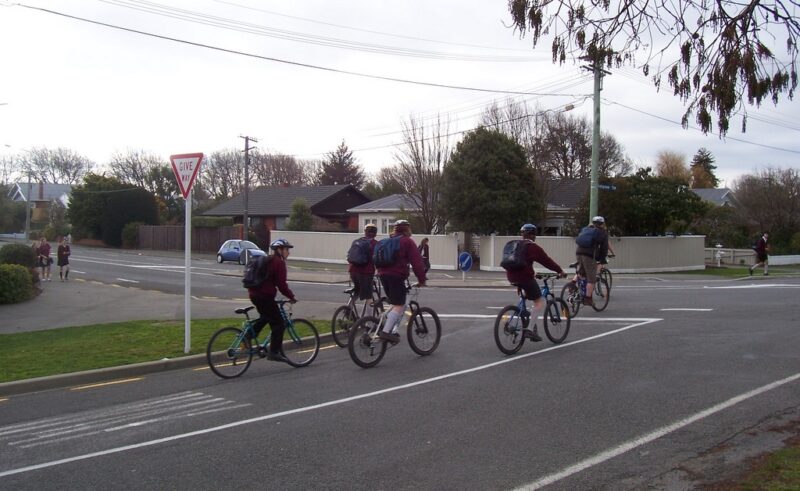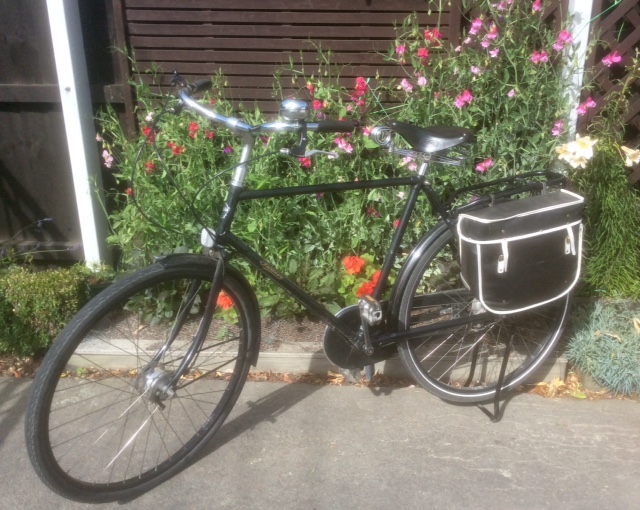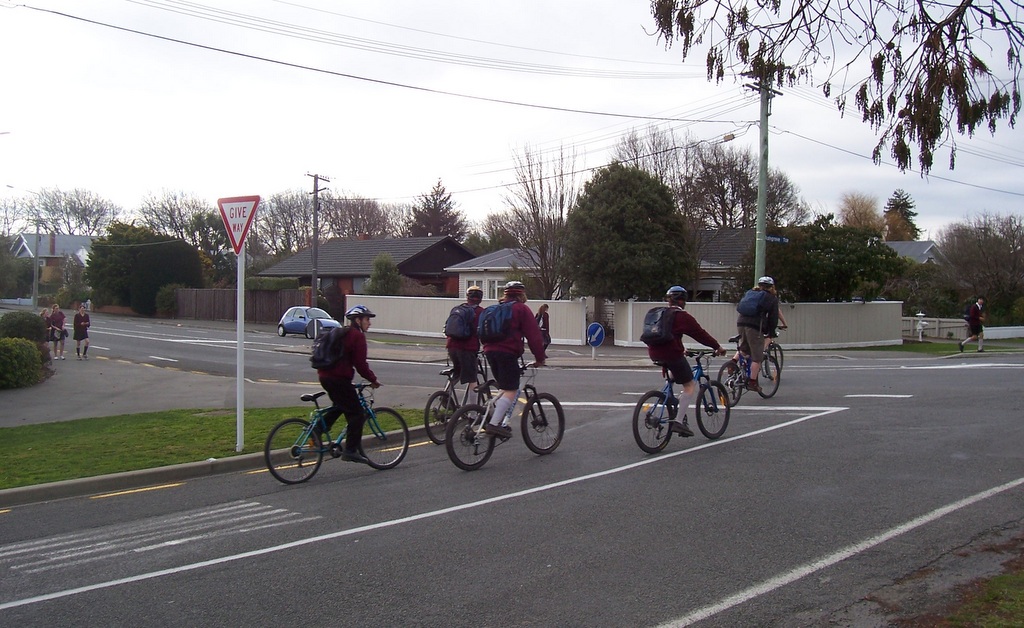Guest blogger Robert has a look at his wallet (and a few other measures) this week:
It was good to see the recent post from Lennyboy sharing the reports of an increase in numbers of cycles using the shared Hagley Park cycle-way. And, by comparing usage of the new Matai Street/Deans Ave crossing with previous numbers riding from Hagley Park onto Kilmarnock Street, the numbers are very encouraging. Will there will be someone somewhere busy doing sums to calculate just how much per rider these facilities are costing? How wise is it to question the value of the spend on cycling when this money could be spent on fixing the roads and reducing traffic congestion with immediate effect? Not looking at the bigger picture is the way of the unconverted, but how do you explain the many benefits that cannot be easily measured to those far removed from a culture of cycling.

My philosophy of getting around by bike for just about every journey imaginable has moved on from the fanatical phase to ‘it happens without thought or question – end of story‘. It is time therefore to share a few non-statistical stats and some benefits.
Since 2010, the distance our car has travelled each year has reduced from nearly 9000km to under half of that (fluctuations dependent on which part of the country we holiday in), a yearly reduction of between 1000 and 2000km. The car has been relegated to wet weather, out of town, and trailer towing use only.
For the past three years, the cost of running our car (insurance, registration, petrol and repairs) per year has been $1762, $1911, and $1257 respectively, variances mostly due to the timing of servicing and extras such as purchase of tyres. For the past three years our household (two persons) has spent a total of $2019 to maintain five bikes and purchase accessories such as a car rack, lights, pump, helmets, some clothing and locks. All items have been purchased full retail at a bike shop, in return for a reasonable deal for servicing and advice. This is important to us but, by shopping online or buying second-hand, this spend could have been much less.
Average cost per year = Car: $1643 and Five Bikes: $673

That is a modest saving of $1000 p.a. but is not to be sneezed at. The story looks even better when you consider we were once a two-car household (why? To be honest, I really do not know). To consider depreciation costs on a similar second car (10 year old, purchase price at 2 years old = $18,000) a conservative amount would be around $1500 per year. We have five bikes, total purchase price = $5800. If they last for 10 years (which is likely) the yearly cost would be $580 or less. Saving another $1000 per year. These savings would go quite a way to assisting a family or anyone struggling with finances.
What is important to note however is that, contrary to the opinion of some, riding a bike saves money but it is not free. If transport is important, then having a reliable well-maintained bike is also important. Skimping on cost is a false economy. The optional accessories make it more enjoyable, so are important to maintain the momentum until the habit is entrenched into one’s lifestyle.
The benefits that are difficult to measure (unless you happen to be into the field of health and general fitness, happiness and social connectivity research) are simply feeling better, physically and mentally. The enjoyment of social contact, whether it be a smile or hello shared when passing another biker, or a discussion about ‘quaxing’ in the supermarket bike stand. It may be the simple satisfaction of finding a new route somewhere that is attractive, faster, or has less interaction with vehicles. The improvements in infrastructure are a cause for celebration and the positive conversations had with so many people (local or visitor) about Christchurch becoming a better city for cycles now seem commonplace rather than being unusual.
So it will be good to have some more locally generated statistics about cycling numbers in Christchurch as the cycle-way project rolls out in the next 3 to 4 years. It will be equally as good to subjectively observe qualitative improvements that make a city great to live in and move about in. They are happening now, and the momentum is growing.
How much do you think you save by biking regularly?


Hard to say, but my car used to do ~2500-3000 miles a year, and last year did under 500 miles. In the same window my cycling was in the thousands of km, but that was a lot of exercise…. few drive cars for fun.
For those on a tight budget a good used bike at $200 should last for at least a decade, or $20 per year annualized. If you learn to do most of your own maintenance and repairs, as I do, tyres become the big expense, about $30 per year. Even at $180 per year for professional repairs cycling can be had for about $200 per year.
Sell the car and rent one when needed and save even more.
We spend a shade over $1500/year on petrol, registration, warrants and basic maintenance for the car. Like Rob, I reserve the car for bad weather, heavy loads and long distance. People don’t believe me when I say I only fill the car once a month. One hopes that the car will last a deal longer since it has such light use too. Our car is a thirsty, turbo-charged Legacy wagon, but running it is a luxury I can afford since I don’t drive that often.
I have timed the drive and the bike ride to work. It takes about 15 minutes to drive, and about 25 to cycle at a pace that doesn’t break a sweat. I have a route that goes through the quiet back streets of Spreydon, then along the edge of Hagley Park towards the hospital and across town to Kilmore St. As far as I’m concerned, the extra 20 minutes a day are very enjoyable. It’s hard to say how much the sheer pleasure of riding a bike at a gentle pace is worth, but I greatly prefer it to driving a car on our main roads.
If only we measured Gross National Happiness, what a contribution riding a bike would make!